Champions of Change Blog
Doing What Matters for Jobs and Economy
Posted by on May 13, 2013 at 9:55 AM EDT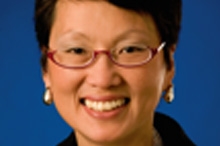 Van Ton-Quinlivan is being honored as a Champion of Change for her efforts as an AAPI Women leader.
Van Ton-Quinlivan is being honored as a Champion of Change for her efforts as an AAPI Women leader.
I immigrated to the United States with my family at the age of six from the Vietnam war. My journey shares the same national fabric many refer to as the American Dream. And, as I recollect what enabled me to attain my current standing and level of achievement, credit goes to my schooling and education for opening key doors that enabled me my future. This acknowledgment is the core reason why I now work with great passion to answer President Obama’s call to close the skills gap between what employers want and those that American workers have.
I am the vice chancellor of workforce and economic development of California's system of 112 community colleges and our 2.4 million students. In this role, I work to transform the country's largest higher education system through my leadership focus on Doing What MATTERS for Jobs and Economy. My work emphasizes stackable credentials in sectors important to California’s regional economies. I work to unify once siloed policies so that students can find themselves more successful as they enter and stay in the workforce. By closing the skills gap, community colleges play a vital role in enabling the American Dream.
I came to this role as a recognized thought leader from the energy and utility industry, where I architected the best practice model PG&E PowerPathway™. PowerPathway demonstrated the type of collaboration between industry, the public workforce system, education, and organized labor that effectively transitions military veterans and members of underserved communities into energy sector jobs. I was one of five corporate leaders invited to the first White House Community College Summit and spoke at the inaugural Clinton Global Initiative-America focused on ‘Jobs, Jobs, Jobs.’
Thomas Friedman quoted me in his September 8, 2012, article entitled “The New Rules.” In the same article, he wrote about the reality of today’s workforce. “The truth is, if you want a decent job that will lead to a decent life today you have to work harder, regularly reinvent yourself, obtain at least some form of postsecondary education, make sure that you’re engaged in lifelong learning and play by the rules.” I hope that through my work with the community colleges, I will keep open the doors to jobs and the economy for others the way others have opened doors for me.
Van Ton-Quinlivan is vice chancellor for workforce and economic development for California’s Community Colleges.
Learn more aboutWanting More and Finding Disability Justice
Posted by on May 13, 2013 at 9:31 AM EDT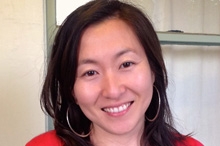 Mia Mingus is being honored as a Champion of Change for her efforts as an AAPI Women leader.
Mia Mingus is being honored as a Champion of Change for her efforts as an AAPI Women leader.
I have been politically active my whole life, being raised by a strong feminist community on the island of St. Croix in the U.S. Virgin Islands that were working to respond to violence against women and children. We talked about oppression around the dinner table, helped stuff fundraising letters every year, went to protests and take back the night marches. Though I came out of my upbringing with a strong political analysis of oppression and violence, no one ever talked to me politically about disability and ableism.
I have been disabled since I was a baby. My childhood was spent wearing a brace that went from my heel to my hip for as long as I can remember until I was in college. I was in and out of hospitals having numerous surgeries, seeing doctors, physical therapists and brace makers, as well as different kinds of healers.
Disability was always framed as a sad or bad thing, as something unfortunate that happened to me, a tragedy, a flaw. My experience with the medical world was one about “fixing” me and making me more “normal” and less disabled. This of course, echoed my experience of the world at large. I never saw disabled women in the media being desired or living whole complex lives, let alone disabled women of color. The messages always boiled down to: disability is wrong and undesirable.
As a political activist I knew this was not right, but as a disabled person of color, there were not many messages telling me otherwise, even in social justice work. I looked to the disability rights movement, but rarely saw disabled people of color in leadership and in the racial justice, queer and feminist movements I was a part of the leadership was always able bodied people of color. In my early twenties I began to think, surely the same framework that had taught me to reject racist, sexist, ageist and homophobic messages the world told me about what it meant to be a young queer Asian woman, would also reject the message that disability was ugly and something to be pitied and cured.
Most of my work takes the form of educating communities about disability because disability is something that we are taught to know very little about. Most of my work has been in political movements for social justice and queer and trans, people of color and feminist communities, with fellow activists and organizers, pushing them to respectfully integrate a disability justice analysis in to their work and lives. Most people only know about disability from a very individual and medical understanding and have not connected disability to their work for justice and liberation. For many significant and important reasons, disability has been very segregated from others social justice movements. I work to change that.
Through my work on disability justice, I hope to create what I wish I had had when I was coming into political consciousness: a way of understanding myself. I hope to be a small part of the legacy of work that disability justice activists are carving out, so that young queer disabled girls of color can use our work and, undoubtedly, evolve it. After all, when I first found disability justice, it wasn’t even called “disability justice” yet.
I am truly humbled to be amongst so many other amazing Asian American and Pacific Islander women doing such important work in our communities. I see my work in concert and interdependent with their work and all of our work as necessary for true justice and liberation. Throughout my life, my work has taken different forms, but the roots of it have always been the same: justice and liberation for all of us, not just some of us.
Mia Mingus is a writer, organizer, and member of the Bay Area Transformative Justice Collaborative.
Learn more aboutEnding Hepatitis B in the AAPI Community
Posted by on May 13, 2013 at 9:10 AM EDT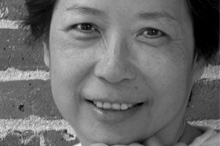 Arline Loh is being honored as a Champion of Change for her efforts as an AAPI Women leader.
Arline Loh is being honored as a Champion of Change for her efforts as an AAPI Women leader.
I was infected with the Hepatitis B Virus (HBV) at birth by my mother. The mission of my work is to draw upon my own experiences with the disease to educate and inform the public about the dangers of the HBV and ways to prevent it. The Asian American and Pacific Islander (AAPI) population is disproportionately affected by HBV, and most contract HBV during birth. The majority of the AAPI population, especially those who are immigrants and first generation Americans, still lack awareness and knowledge of Hepatitis B such as its modes of transmission, prevention, disease progression, and current treatment options.
I launched my first Chinese/English bilingual Hepatitis B Patient Support Group in 2007 in the heart of Chinatown in Manhattan. It was soon followed by the second Hepatitis B Patient Support group at the Weill Cornell Medical Center in Manhattan. The groups met monthly and serviced a mixture of locals and visitors from surrounding states. The majority of these patients were new immigrants who often were non-documented, transient, not educated, and holding multiple jobs in order to make a living. Consequently, it was difficult for this group of patients to regularly attend group meetings, let alone follow-up in a Manhattan clinic for management of their condition. Most of the patients that were being treated in Manhattan discontinued treatment as soon as they were feeling better and never showed up.
Based on this experience, I developed an alternative outreach model for a program with a better return on investment and measurable outcome. Together with Dr. Tomoaki Kato, an abdominal transplant surgeon at Columbia Medical Center, we established the Health and Education for Asian Liver (H+EAL) outreach project in 2008.
For this initiative, we mobilized a team of 20 medical students from the five boroughs of New York City. Along with a hepatologist advisor, we developed a model to educate the at-risk population through their offspring who are generally better educated than their parents. This outreach and education was conducted through first or second generation AAPI high school students whose parents were either immigrants or first generation Asian Americans. The goal for this model was to encourage high school students to take home and share their newly acquired knowledge of Hepatitis B with their parents in hope that their parents, in turn, will actively get screened and receive appropriate medical care.
Our preliminary results for this alternative model were rather encouraging. The follow-up survey showed that 35% of the students spoke to their parents; 42% intend to talk to them in future, 24% encouraged them to get screened; and 25% encouraged them to be vaccinated. These findings demonstrate that the H+EAL project has been able to fulfill its goal of reaching a high percentage of the target population with hepatitis B awareness and education. Our future challenge for this model is to further develop more effective tools and guidance to increase their confidence level in talking to their parents.
Arline Loh is a co-founder of H+EAL (Health and Education for Asian Livers).
Learn more aboutEnsuring All Children Are Free From Experiences of Slavery
Posted by on May 13, 2013 at 8:53 AM EDT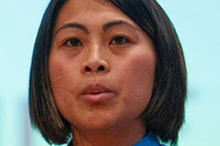 Minh Dang is being honored as a Champion of Change for her efforts as an AAPI Women leader.
Minh Dang is being honored as a Champion of Change for her efforts as an AAPI Women leader.
One of the first neuroscience lessons I received was through reading Parenting from the Inside Out by Daniel Siegel, M.D. and Mary Hartzell, M.Ed. I learned that the relationship between a parent with their child directly impacts the child’s brain development. Quite literally, the parenting we receive manifests itself in our brain cells. Whether we are loved or abused, our brain captures the experience.
Child sexual enslavement, also referred to as the commercial sexual exploitation of children (CSEC) or child sex trafficking, is a horrible crime where in which adults psychologically and economically exploit children. While news stories highlight the fact that children’s bodies are sold for sex, it is also a child’s identity, spirit, and future that are up for sale. The injustice of child sexual enslavement is not just in the atrocities of incest, on-going statutory rape, and physical violence. Children who are enslaved are also experiencing neglect of their normal developmental needs. They are given an existential identity crisis, faced with the need to believe they are fundamentally unlovable and deserve the maltreatment. Moreover, the injustice of childhood sexual enslavement lies within the fact that the impact of childhood slavery lives on with a human being for much of their adult lives. It lives on in their brain cells.
Every human being deserves to live in freedom from birth to death. Don’t Sell Bodies, an initiative of the Will and Jada Smith Family Foundation, works to ensure that all children are free from experiences of slavery. Valuing love over domination, our work is to reveal the atrocities of child sexual enslavement, and slavery broadly speaking, and to mobilize citizens, non-profits, businesses, and elected officials to take action. While it may be difficult for the general public to understand that the experience of CSEC is really comparable slavery, Don’t Sell Bodies uplifts the stories of survivors like myself, to highlight the true nature of this crime. I can tell you from my own experience that it is slavery. My parents treated me as a commodity and used me for both economic and emotional gain. Like a slave, I was forced to serve my masters in any way they desired. They reaped financial gain and they also experienced sadistic pleasure from their domination of me.
I invite readers to think of child sexual enslavement as not just another social issue. I invite us to consider this the human rights issue of our time. Clearly not everyone is enslaved, yet we are all impacted by the culture of slavery. It is our need to have someone "less" than us, whether that is through feeling more powerful, educated, or wealthy, that drives the enslavement of another human being. It is through our need to make someone feel the pains we have felt, to make them feel less human, which allows us to treat people like objects. It is in the roots of child abuse and slavery that we will find the roots of violence, discrimination and dehumanization. In expelling slavery in our nation and abroad, we will become a more safe, just, and compassionate society.
Minh Dang is Executive Director of Don’t Sell Bodies.
Learn more aboutLinking Generations through the Arts
Posted by on May 13, 2013 at 8:26 AM EDT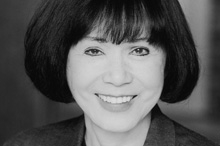 Nancy Tom is being honored as a Champion of Change for her efforts as an AAPI Women leader.
Nancy Tom is being honored as a Champion of Change for her efforts as an AAPI Women leader.
For more than 50 years, I have stressed the importance of communication as a vital part of moving the Asian American and Pacific Islander community forward. In my world, the arts is one of the best ways to communicate—to truly convey who we are and what we do, and to link the generations together.
My work in the arts began by exposing Americans to Asian culture and works. But I soon realized that just as society was evolving, so too was the arts as a medium for heightening the awareness of Asians and Asian Americans. I founded the Center for Asian Arts and Media at Columbia College in Chicago so Asian Americans, the local art community, and the general public could better understand the historical and contemporary contributions by Asians and Asian Americans to art, history and culture. Thinking outside of the box, the Center presented not only visual art, but music, performance, lectures, film and more as part of its outreach efforts.
But we didn’t stop there. There was a distinct need to reach out across generations and cultures. So as the city of Chicago prepared to showcase Chicago at the 2010 World Expo in Shanghai, I knew we had to be part of it, and we needed to be innovative in how we did it. Thus was born Hip Hop ChicaGO: Connecting Cultures One Beat at a Time. 26 local multicultural artists blew audiences away in Shanghai celebrating the best of Chicago hip hop culture with a showcase of authentic beats, rhymes and moves that blended signature hip hop elements with American and international influences.
I also wanted to encourage women and girls of Asian descent, and of all cultures, to think critically about the issues they face, creatively expressing their heritage and identifying and discovering alternative resolutions to conflicts through programs that explored race, gender, class, sexuality, family structure and human rights. Named the “Woman Warrior Festival” after the best-selling book by award winning Chinese American author Maxine Hong Kingston, this program showcased women, empowering them to explore the tensions of growing up in conflicting cultures.
I also firmly believe that it is important for younger generations to remember their past – for the past informs the future. Therefore, my next project will look at the Chinese Exclusion Act through film, a visual exhibition, and frank discourse on this historical topic with ongoing implications – an especially timely project given the current discussion on immigration.
Nancy Tom is the founder of the Center for Asian Arts and Media at Columbia College Chicago.
Learn more aboutEmpowering Women at Home and Abroad
Posted by on May 13, 2013 at 8:07 AM EDT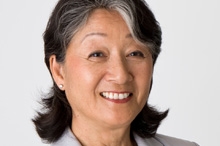 Atsuko Toko Fish is being honored as a Champion of Change for her efforts as an AAPI Women leader.
Atsuko Toko Fish is being honored as a Champion of Change for her efforts as an AAPI Women leader.
My commitment to social change did not occur overnight. It was a gradual learning process of being inspired by meeting and working with extraordinary people in Boston and beyond.
Working for former Massachusetts Governor Michael Dukakis gave me an opportunity to be a bridge between Massachusetts and Japan by creating and implementing long-term tourism and trade strategies. I also served for ten years on former Massachusetts Governor William Weld’s Asian American Commission, receiving his New American Appreciation Award.
At Management Sciences for Health (MSH) in Boston, I had the first-hand experience of an excellent nonprofit making a difference and impacting people’s lives in developing countries. This experience at MSH prepared me to quickly respond to the earthquake and tsunami disaster that occurred on March 11, 2011 in Japan. I knew exactly what to do, understanding that time is of the essence, and the importance of being on the ground to assess the needs. I called for immediate action and, with a team of Japan-experts and energetic young professionals, created The Japanese Disaster Relief Fund - Boston (JDRFB). As a vehicle for people in New England to directly support the affected area in Japan, JDRFB raised nearly $1 million by March 2013 and gave 24 grants to 19 organizations.
My passion has also been empowering women, particularly through two organizations: the Asian Task Force Against Domestic Violence (ATASK) and the Japanese Women’s Leadership Initiative (JWLI). ATASK is a Boston-based organization providing shelter and support services to Asian survivors of domestic violence and their children. The board and I helped move the organization forward from a grass-roots group to a social enterprise that now transforms dreams of domestic violence victims into reality. In 2005, I founded JWLI to empower Japanese women to become leaders in the emerging nonprofit sector and agents for social change in Japan. In partnership with Simmons College, we developed the JWLI Fellows Program in Boston, a unique hands-on leadership training focusing on best practices of nonprofit management and strategies; and the JWLI Forum Program in Japan, a platform for the JWLI fellow graduates to share the knowledge and experience gained in Boston. By 2012, JWLI graduated 23 fellows, who established the JWLI Alumnae Association Japan and hosted four forum events, attended by approximately 500 people in total.
As a first generation American, I understand the challenges and complexities faced by immigrants. Therefore, I am involved in the Greater Boston Citizenship Initiative (GBCI). GBCI is a collaborative project that educates immigrants about the benefits of citizenship and helps eligible, legal permanent residents (LPRs) to overcome barriers to naturalization. GBCI hosts clinics providing eligibility screening, application assistance, legal referrals and all materials needed to apply for U.S. citizenship. This work is rewarding because I believe that if you have a vision and work hard, the United States is still the country where your dreams can come true. GBCI provides this important step, getting closer to realizing dreams.
It is indeed a privilege to receive this recognition and a pleasure to share this special moment with my family, friends and those from whom I have learned. Now more than ever, I strongly believe that the United States is a land of opportunities and a place where dreams come true.
Atsuko Toko Fish is a founder of the Japanese Women’s Leadership Initiative and Japanese Disaster Relief Fund-Boston
Learn more about
- &lsaquo previous
- …
- 70
- 71
- 72
- 73
- 74
- 75
- 76
- 77
- 78
- …
- next &rsaquo
White House Blogs
- The White House Blog
- Middle Class Task Force
- Council of Economic Advisers
- Council on Environmental Quality
- Council on Women and Girls
- Office of Intergovernmental Affairs
- Office of Management and Budget
- Office of Public Engagement
- Office of Science & Tech Policy
- Office of Urban Affairs
- Open Government
- Faith and Neighborhood Partnerships
- Social Innovation and Civic Participation
- US Trade Representative
- Office National Drug Control Policy
categories
- AIDS Policy
- Alaska
- Blueprint for an America Built to Last
- Budget
- Civil Rights
- Defense
- Disabilities
- Economy
- Education
- Energy and Environment
- Equal Pay
- Ethics
- Faith Based
- Fiscal Responsibility
- Foreign Policy
- Grab Bag
- Health Care
- Homeland Security
- Immigration
- Innovation Fellows
- Inside the White House
- Middle Class Security
- Open Government
- Poverty
- Rural
- Seniors and Social Security
- Service
- Social Innovation
- State of the Union
- Taxes
- Technology
- Urban Policy
- Veterans
- Violence Prevention
- White House Internships
- Women
- Working Families
- Additional Issues

